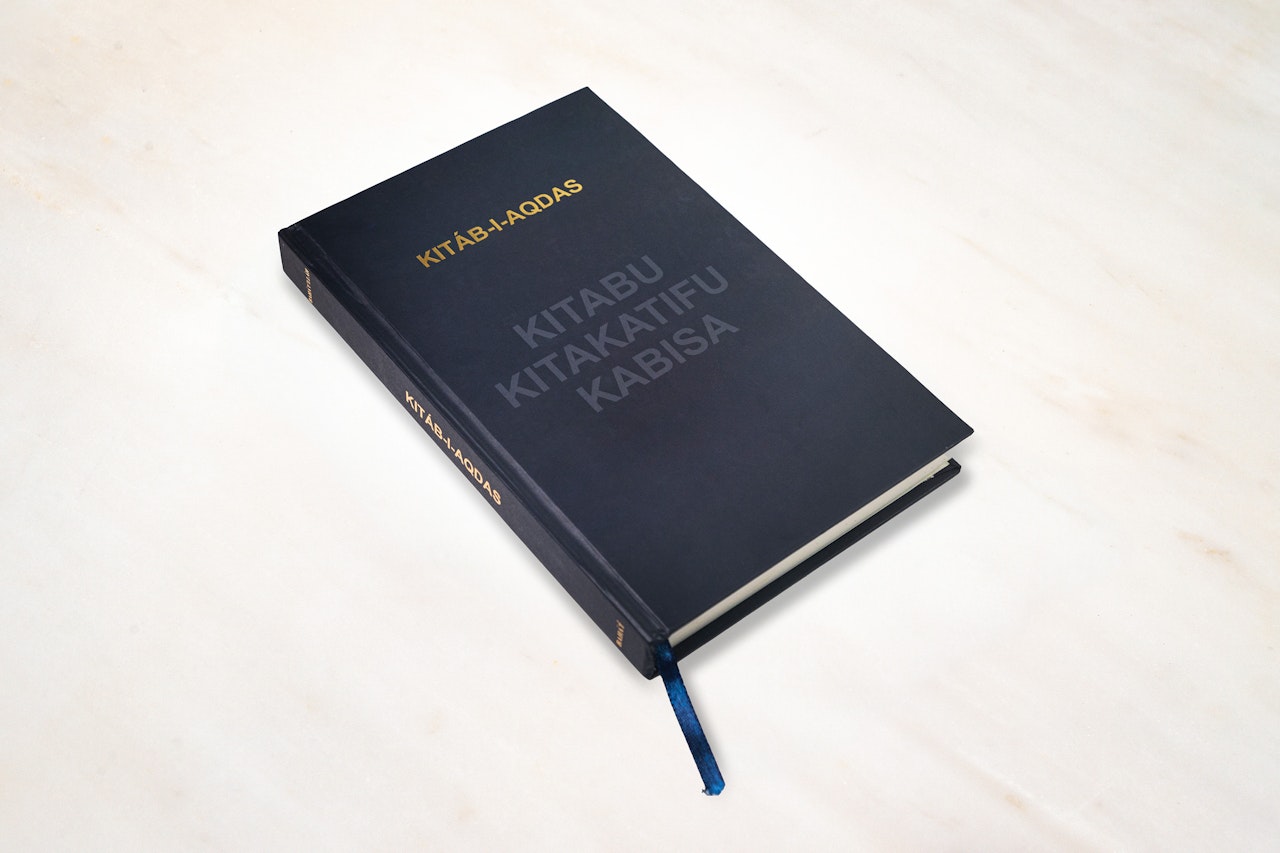Tanzania
Bahá’í Most Holy Book published in Swahili
The first printed copy of the Kitáb-i-Aqdas—Bahá’u’lláh’s Most Holy Book—in Swahili has been published by the Bahá’ís of Tanzania.

The first printed copy of the Kitáb-i-Aqdas—Bahá’u’lláh’s Most Holy Book—in Swahili has been published by the Bahá’ís of Tanzania.

DAR ES SALAAM, Tanzania — A recent gathering at the National Bahá’í Centre in Dar es Salaam celebrated the inaugural publication of the Swahili translation of the Kitáb-i-Aqdas—Bahá’u’lláh’s Most Holy Book—making this sacred text available in a language spoken by over 200 million people across Africa and beyond.
The project commenced in 2015 when the National Spiritual Assembly of the Bahá’ís of Tanzania brought together a translation team dedicated to this project in order to ensure a faithful rendition of the sacred text. By 2022, the translation had been completed and rigorously reviewed to ensure its faithfulness to the original. The event marked the release of the first printed edition.
Bwana Hashim, the coordinator of the translation project, spoke about the meticulous work involved in translating the Kitáb-i-Aqdas. “The process involved over 150 contributors, both locally and internationally, who focused on ensuring the translation’s accuracy, beauty, and fidelity to the original text’s style,” he noted.
Augustino Ibrahim, a member of the Board of Counsellors in Africa, emphasized the significance of the translation effort: “This enables people to develop a greater appreciation and understanding of the principles of the Bahá’í Faith and its sacred laws.”
The Kitáb-i-Aqdas is Bahá’u’lláh’s book of laws, first penned in Arabic around 1873 while He was still imprisoned within the city of ‘Akká.
The authorized English translation of the Kitáb-i-Aqdas was first published in 1992, the year that marked the centenary of Bahá’u’lláh’s passing. Since then, translations into numerous other languages have followed.
Geoffrey Nduke, Secretary of the National Assembly, highlighted the significance of the publication: “The National Spiritual Assembly is hopeful that the Kitáb-i-Aqdas will enable people to deepen their understanding and inspire their efforts to serve society.”